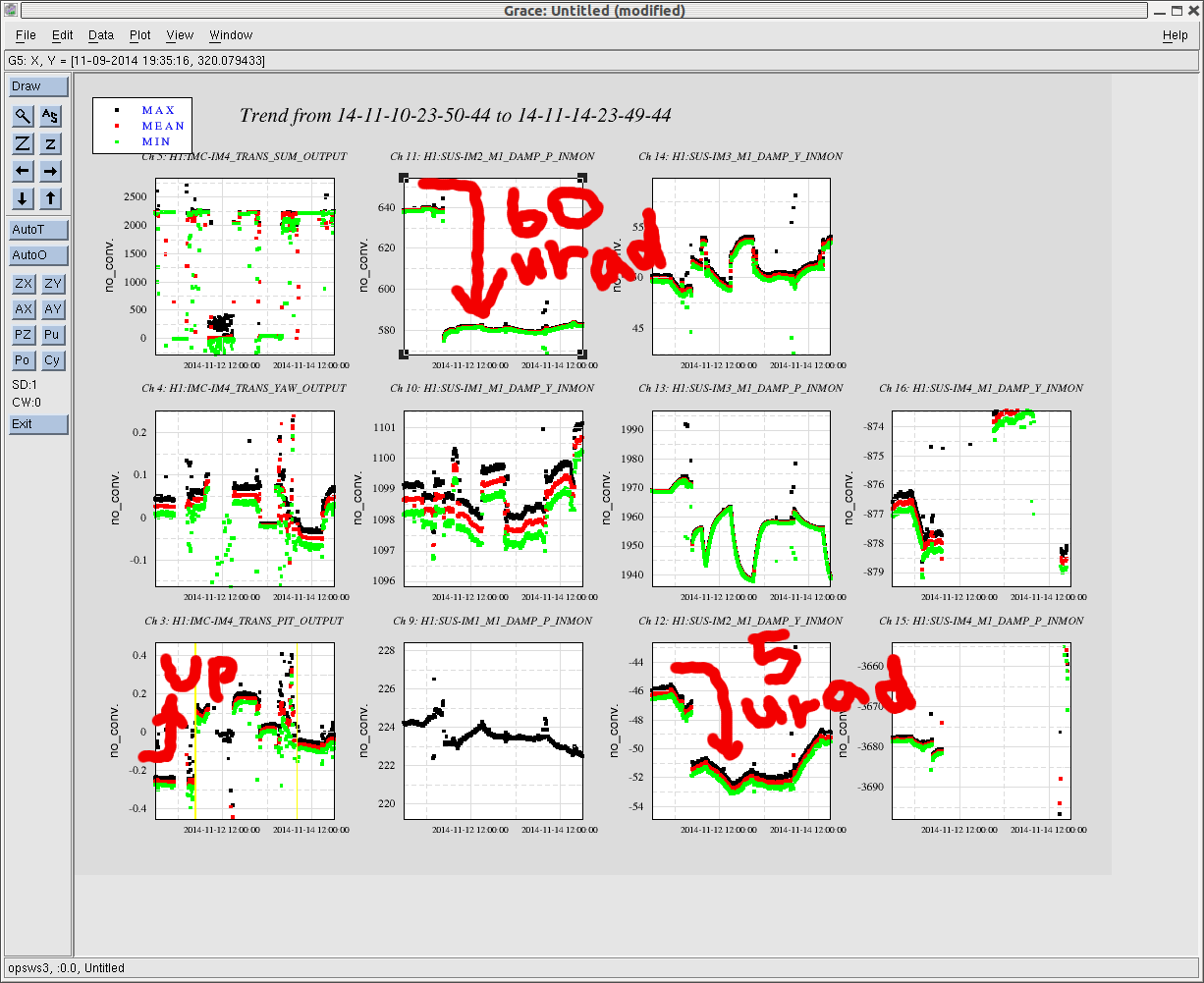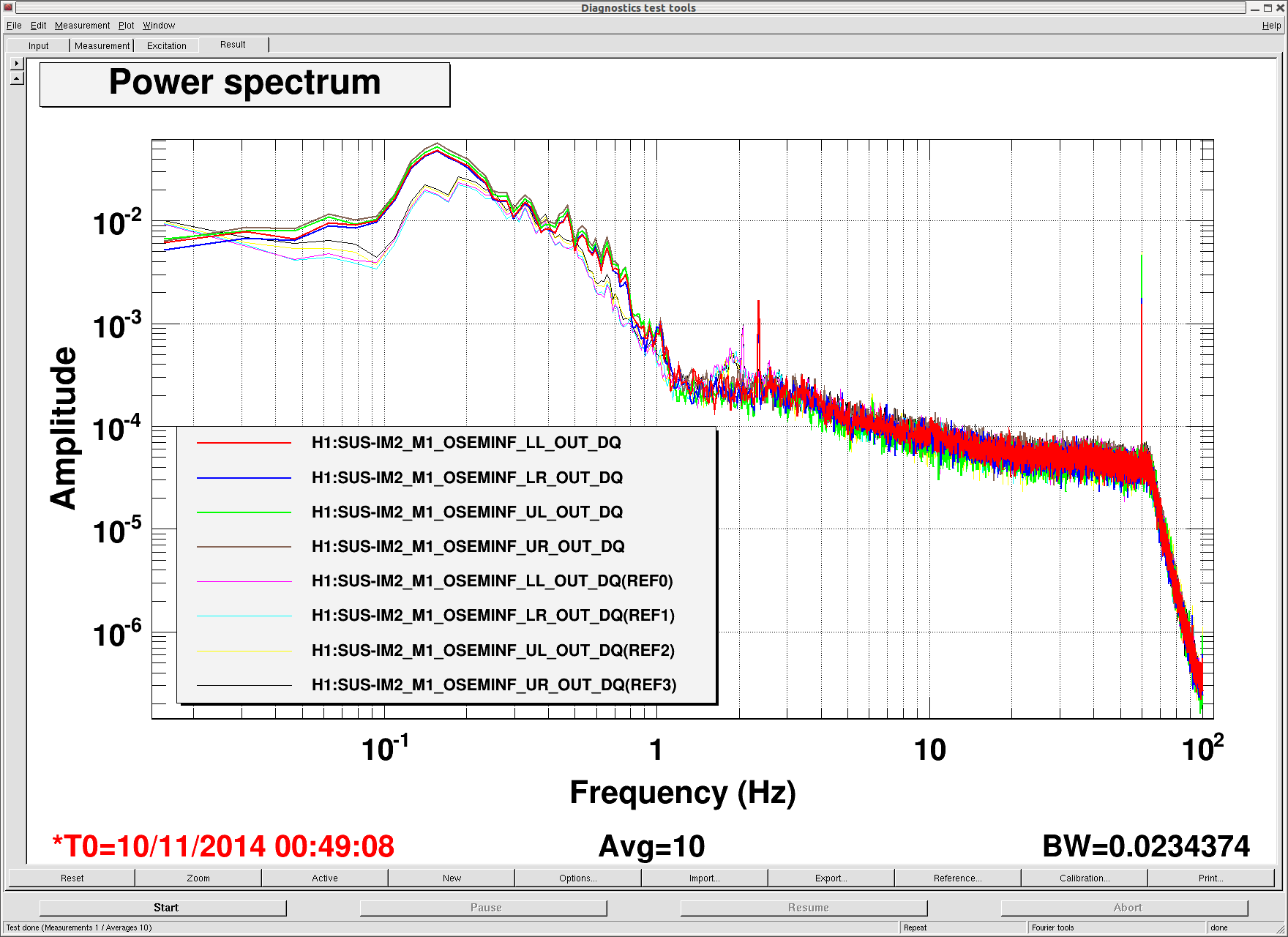With the correction (update) of the L2C2L matrices planned for possibly tomorrow, I went through the controller development (required) using generic loops Hugo designed (SEI log 489.) These are 5hz UUG controllers. The vertical dofs looked okay but X Y & RZ looked a bit marginal around the UUG--see first attachment. This plot shows the 5hz generic controller for X; the gain peaking is higher than comfortable and the phase margin is marginal. The controllers for Y & RZ are marginally less marginal. I made a new controller set with 2Hz UUG and and reduced the boost zero from 1 to 0.7hz on X Y & RZ. I'll keep the 5hz controllers for the vertical dofs and go with these more conservative filters for the horizontal dofs.
The pdf attachment shows all eight controllers I plan to install tomorrow if allowed.
The second image attachment is the only controller I found saved in the svn. It looks pretty wild but it doesn't quite match the foton filter so I don't know if it really represents the controllers we've been using. Still it sort of represents the wild west in our controller development evolution.














